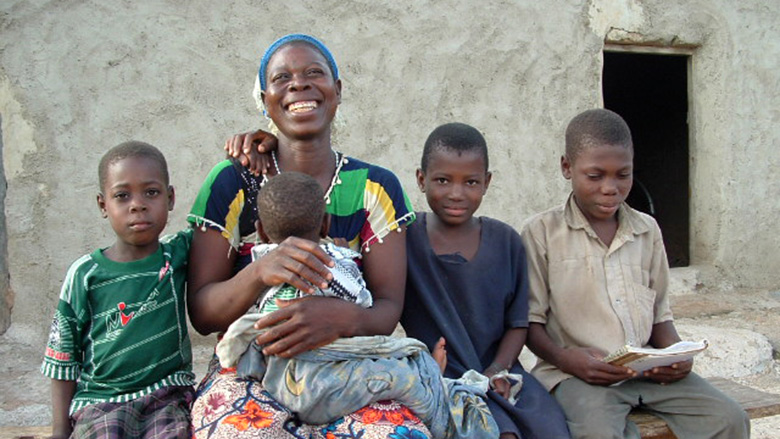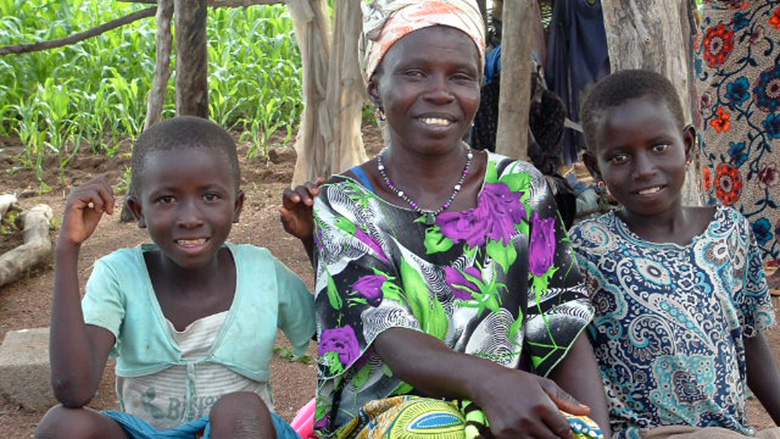“With the money I receive each month to provide my youngest child with better nutrition, I can provide healthier food for all my children. I see a big change in their physical condition—their health and hygiene conditions are much better than before. When they are sick, I can take them to the health center to receive care. In addition, the program has allowed me to send my eldest child to school and now all four have birth certificates,” she says.
Launched by the Togolese government in 2013 with financial assistance from the World Bank and the Japanese government, and in partnership with the United Nations Children's Emergency Fund (UNICEF), the program targets parents with children between the ages of 0 and 24 months, a particularly vulnerable age group, in the Kara and Savanes regions where malnutrition rates are particularly alarming. In exchange for monthly financial assistance, parents are encouraged to obtain birth certificates for their children, send them to school, and provide them with access to health care.
Nanifei Lardja, a resident of Nadjote and mother of five children (whose husband died when she was pregnant with her last child), shares Abna Kolani’s enthusiasm. As a result of awareness-raising campaigns on child nutrition, Nanifei can look to the future with greater assurance and plan her expenses. “I buy corn for 2,000 francs, soap for 1,000 francs, and small fish for 1,000 francs. I have my small plot for the vegetables I need and put aside the remaining 1,000 francs for other possible expenses,” she says.
Joachim Boko, a Social Protection Specialist at the World Bank, recently visited the Savanes region to assess the effectiveness of the program. “We are very pleased to note that the support activities organized, in particular the educational talks on the rights of children, nutrition, health, and basic family practices have produced largely positive effects,” he said, adding that “the vast majority of beneficiaries with whom we met showed us the birth certificates they have obtained for their children and confirmed that all their school-age children are attending school. We have therefore achieved the desired behavioral change and this is reassuring in terms of the success of the program.”
While some consider the monthly amount provided to beneficiaries (5,000 CFAF for each child under age two) to be too little, this program offers much more than mere financial assistance. Pounpouni Koumaï Tchadarou, the Regional Director for Social Action in the Savanes region and Program Coordinator, points out that “the 5,000 francs supplement a range of services we provide to the beneficiaries to look after their children,” and explains that “we advise pregnant women to obtain regular prenatal care and to register their children at the civil registry within 45 days of their birth. We do everything to ensure that school-age children attend school. We also do home visits to heighten the awareness of the beneficiaries regarding the role played by good hygiene in improving the health of their children.”
Yom Kouloukitibe, one of the 14,016 recipients to date of this financial assistance, sees the long-term impact of this program. “I used to struggle to meet the nutritional needs of my children and they were often sick. Now they eat properly and I would like the program to continue. However, if it comes to an end one day, the change that it has brought to our lives will be long lasting. One day, you will come back here and see that the children you have helped have become teachers, nurses, and doctors,” she said proudly.


